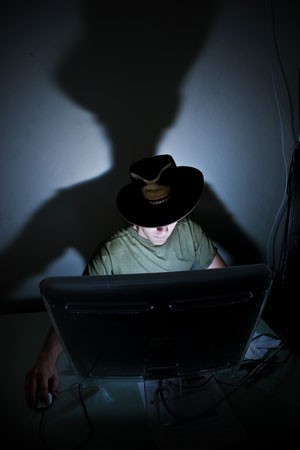Facebook and MySpace are some of the most visited sites by college students. But it’s not just your friends are pulling up your profile.
When the phenomenon of social networking sites first hit, a few colleges took strides to search them and punish offenders, resulting in numerous lawsuits and a controversy in the legal field. So while colleges have cooled the burners on these sites, potential employers have turned theirs up a notch.
“”More and more employers are looking at Web pages of potential personnel and are utilizing some of the info they find to either assist in hiring or striking them from the eligible list,”” said Sgt. Eugene Mejia, public information officer for the University of Arizona Police Department.
“”I have heard that sometimes not only employers but college admissions look into stuff like that,”” said William Ruggirello, assistant director of Career Services. “”It’s not something we encourage employers to do, but we can’t really stop people from viewing what they have access to.””
Many students have found that they’ve been turned down for jobs due to these searches – even for information that others have posted about them.
“”From time to time we’ll get a call from an employer or student saying that they wouldn’t give or couldn’t get a job because of something that’s been posted online,”” said Anthony Skevakis, program coordinator of judicial affairs.
There’s only one way to combat your own potential unemployment.
“”We tell students that if you’re starting a job search you need to be professional at all times, have a nice voicemail message and don’t put anything on the Internet that can come back to haunt you,”” Ruggirello said.
“”Over the course of the past year or so, employers have had a lot more access to things that students don’t really think about,”” Skevakis said. “”Students need to watch what they put up and have a little bit of etiquette, so to speak.””
Many school officials, as well as police departments, have deemed the search of these sites appropriate as long as they pertain to an investigation.
Mejia said as far as he can remember, UAPD has never accessed the site in regards to a case.
“”I don’t think it’s so much used in evidence gathering but it is a tool to seek and identify individuals if they ever become part of a case or we have a hard time contacting them,”” he said. “”As far as gathering evidence to take into court, I don’t think that’s something we’ve ever done.””
Students seem to have opposing views on whether or not it would be appropriate for information on profiles to be used in investigations.
“”If it’s crucial to a criminal investigation, obviously things they say and do on MySpace will be helpful,”” said Rachel Wordelman, a studio art junior. “”It’s public so it should be able to be used against them in that case.””
“”I don’t think it’s appropriate because even though it’s open to the public, it’s still someone’s personal stuff,”” said Nathan Bowles, a pre-business freshman.
As for the Dean of Students Office, they only look into social networking sites when an issue is brought to their attention.
“”We don’t have the time or resources to police Facebook, and MySpace is very much the same,”” Skevakis said. “”We’re not in the business of monitoring student behavior via the Internet. Now if it falls into our lap, we’re obligated to look into it.””
Skevakis said students have come to see him in the past when concerned about the welfare of another student. Often, they bring along an instant message or a posting to further emphasize their concern. In other cases, students may have photoshopped pictures posted by others online or even a profile that they did not create.
“”In these cases I am required to investigate it and usually the student will sign on to the Web page and show me what’s been done,”” he said. “”If it’s given to us, we have a duty to make sure it’s legitimate.””
Most students agree that it’s good to have the Dean of Students Office’s help in blackmail, slander and safety issues via the Web, but that there should be boundaries to their outreach.
“”If it’s a racial or prejudice thing that’s good, but if it’s just drama you don’t need to go to the Dean of Students for that,”” Wordelman said. “”I think it would be kind of pathetic to help them in that case.””
Many profiles that are set to be private can still be accessed in some cases, Mejia said.
“”I haven’t accessed the Web sites myself, but I know that we teach that if you ever put something on the Web it’s not as private as you think.””
How to Protect Yourself
Limit accessibility to your profile. Set your profile to private so people you don’t want to see your profile can’t search your name and access it.
Keep your private information secret. Don’t post things like your address, phone number, e-mail, Social Security number or schedule. Posting things like this can leave you open to identity theft.
Don’t use your real name. Don’t put anything online that would give people the chance to find you in the phonebook.
Be careful with posting your photos. People can copy and paste photos and alter it through Photoshop. People can also use photos to find you when you’re not online.
Don’t give out information that tells you where you are. Don’t post your schedule or when you are meeting someone. This can lead to someone finding you.
Source: University of Texas at Austin, Information Technology Services









